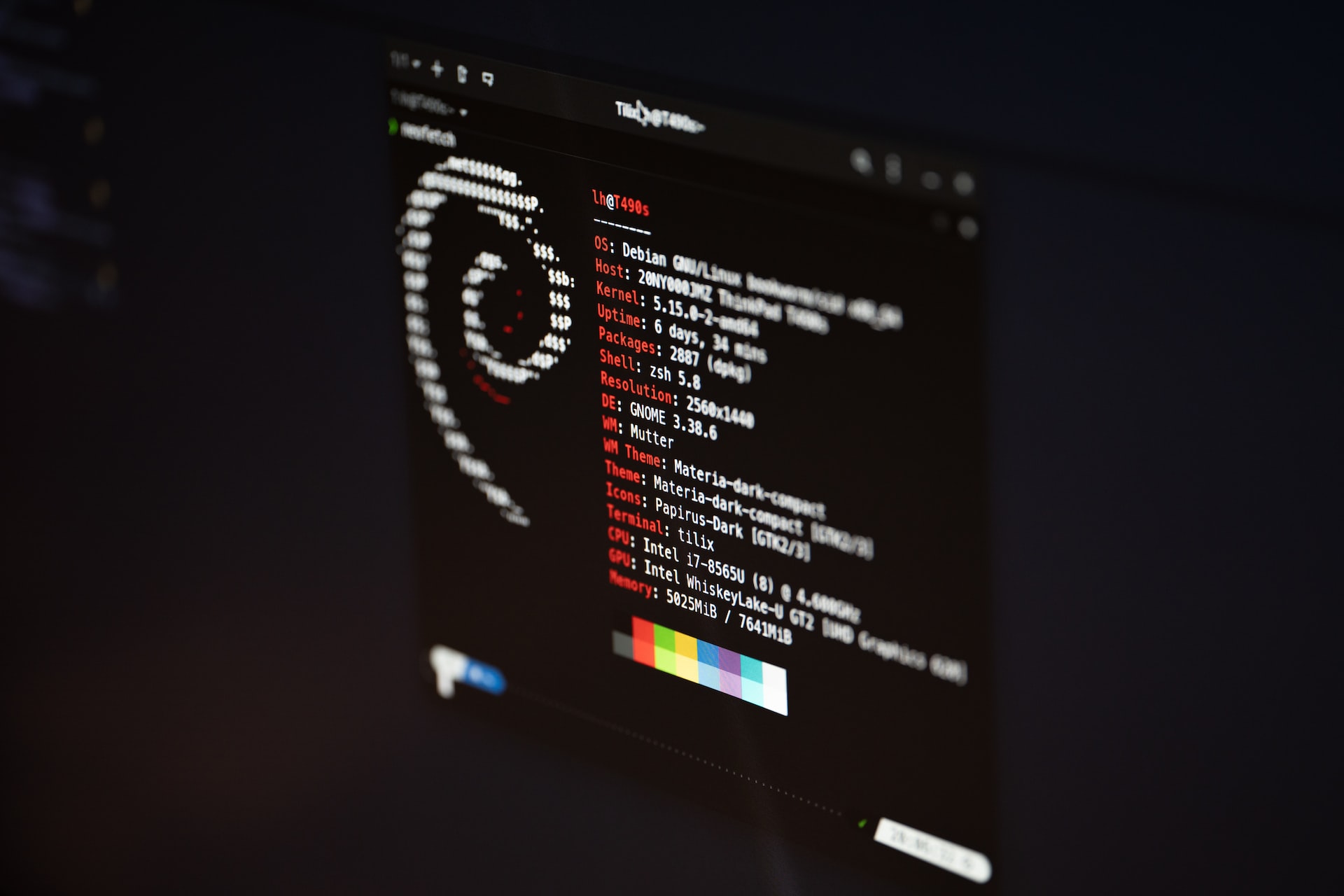Linux has come a long way, baby. It used to be a geek’s chore of installing a distro on a machine, then hunting down firmware and software that would work with the hardware. These days it can be as simple as downloading a popular distro and installing it as you would Windows.
Okay, I say “simple,” but the majority of computer users out there don’t want to install a system on their computer. Microsoft and Apple have created a market where the average user just wants to unbox their new computer and start using it — not install a system. These days, the average user expects it to “just work.” And if it doesn’t work, tech support is just a chat, call, or Genius Bar away.
This has been the way of the computing world since the 1990s. In most countries, computers have become mainstream devices that just about everyone uses every day. Even folks in their 70s and 80s rely on their computer to stay in touch with their friends and family. Smartphones and tablets are almost ubiquitous. They are even getting to the point where some would consider them “throwaway” devices. The old devices are tossed in the trash upon arrival of the next shiny new iteration.
I’m not here to rant about repairability or the environment — today, anyway. I want to talk about the concept that Linux could go mainstream, or start grabbing a large part of the personal computer systems market share.
In short, I don’t believe it’s ever going to happen, because of two intertwined reasons.
Assumed Support
One is support. Going back to the Genius Bar idea, users these days have been trained to expect things to work and when they don’t, just call support — or IT, in a business environment. There’s no reason for anyone to have to understand how their system works or how to fix problems when they arise. There’s always someone else who can solve your problem, so why get your proverbial hands dirty?
There is no Genius Bar in Linux. When something isn’t working in Ubuntu, you can’t call up Canonical and demand they fix your problem. You can’t even pay them to do it. Rather, users have to rely on a combination of searching documentation and participating in a community forum. Not many people are willing to do that work. Not even Linus Torvalds. I don’t mean to deride those people. In computing, there’s a fear that you might mess up something so badly that you could lose all your data. There’s a perception of safety in handing your computer issue over to a trained tech and saying, “Just make it work so I can get on with my life.”
As advanced as computer systems are today, things will still go wrong. That inevitability means that users will need to fix problems, and the way the mainstream computing world exists today, that means relying on outside support.
Who Cares About Open Source, Anyway?
The second reason is philosophy. The concept of Open Source is grounded in both community and an independent, DIY spirit. For the Linux users I know, there’s a curiosity and openness to learning new things that drives us. It’s not enough to know that our computer does (or doesn’t do) something, we need to know why. And further driving us is the question can I change how that works so it suits me better? It’s why we chose Linux in the first place.
The closed, proprietary systems of Windows and Mac OS do not train users to bend the computer to their will. Rather, the user is expected to adapt to the design of the system. Users become dependent upon the major players in the market because they typically provide the most stability, security, and performance out of the box. Businesses need reliable systems for their employees to be productive. For that, they need a “foolproof” system, an IT department, or both. The belief is that Windows and Mac OS won’t let them down, and if they do they’re backed up by dedicated support. Linux sounds like a gamble; uncharted territory that no one wants to explore.
Considering the current state of the computing world, I cannot envision a scenario where XYZ Insurance Co sets up new employees with Linux laptops. Similarly, I don’t think it’s realistic for Jo Average computer user to choose a Linux laptop as their main computer. Not only is there no dedicated support, none of Jo’s friends will be able to commiserate about her computer being down like they could with Windows or Mac. Isolation from the computer-using herd means that you have to live with a certain amount of fear and uncertainty. Windows and Mac don’t just sell computers, they sell the perception of safety and normality. “I’m like them, so I’m okay” is what drives much of society, and computers are not immune to that sentiment.
We Need Better Education
Linux will not “go mainstream” in this current State of Computing, but I do think that could change. However, it’s going to take a lot of education — and not of the nerds who already love messing around with systems. I mean teaching Jo Average how to use a computer on a deeper level.
I believe that if users were better educated about how their computers work and how to troubleshoot problems, then the reliance on the top market performers would lessen. If people felt they had more control over their computers, they would ultimately have more choice in which systems they use.
I believe that Computer Science should be a required part of the public school curriculum, just as Math and Science have always been. Is every child going to become a software developer? No, of course not. Yet we teach kids chemistry and algebra, even though most students will never become engineers or rocket scientists.
If we educate kids early on about how computers work, they will be able to make more educated decisions about technology in the future. Rather than simply accept that they need the latest M2 MacBook Pro, they may start realizing that their current machine will be just fine for another few years. Then they’ll start demanding that their computers last longer and may even assume they’ll be able to repair them. Education creates choice. Education also creates security. If you understand how to secure your system without relying on the latest McAfee update, you’ll be less likely to fall prey to a hacker.
With the current state of the world, I don’t believe that Linux will become mainstream. We need a whole lot more education before that happens. It doesn’t matter that Ubuntu or Pop! OS are so easy to use out of the box. As long as users believe they need to lean on proprietary systems like MacOS and Windows, those systems will continue to dominate the personal computer world.
Who Cares?
Why does it matter to me whether or not more people use Linux or open source software? Because I believe that the more society relies on Apple and Microsoft for computing, the dumber we’ll get and the less likely we’ll ever break out of that cycle of systems domination. Computers should make us more free. We should be able to control them and not be controlled by them. Just as reading, writing, and arithmetic illiteracy limit a person’s opportunities and freedom, so does lack of computer literacy.
I’m not bashing Apple and Microsoft. I’m not “canceling” them, I’m advocating for better education. I own several MacBooks and a Windows Laptop, as well as a System76 Darter Pro. I think that computer science literacy includes an understanding all kinds of systems.
Not everyone needs to be a “computer geek.” Some people just want to get things done, and that’s fair. The problem lies in the idea that when those people get stuck, they stay stuck until a “computer geek” steps in to save them. I don’t think every driver needs to be able to rebuild a carburetor, but I do think everyone needs to know how to check their oil and change a tire.
Epilogue
A funny thing happened on the way to finishing this post. I was trying to create a bridge connection from my Linux laptop to an old MacBook Pro where I had just installed Debian. Something went wonky in the process and my WiFi got messed up. As if to prove the point of the post, I had to do a lot of research to find the cause and solve the problem — which I did, eventually. I wasn’t able to phone Tech Support and ask them to solve my problem. It was only through the community of other Linux users who freely share their knowledge that I was able to fix my WiFi. My knowledge has expanded. My experience in troubleshooting systems continues to grow. And now I’ll freely share it with others who need the same kind of help.


Leave a Reply